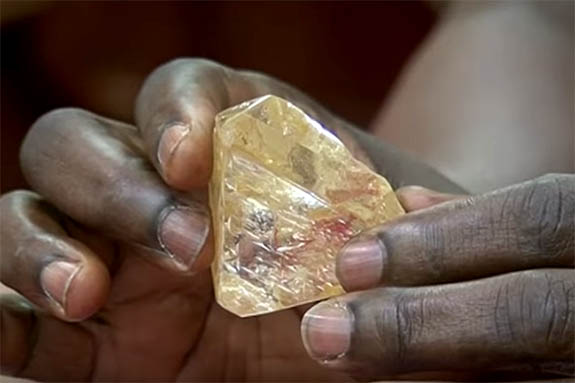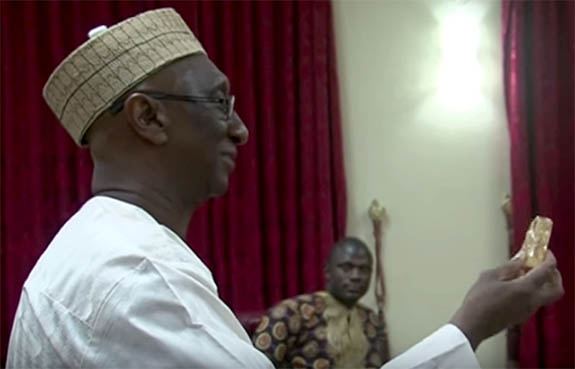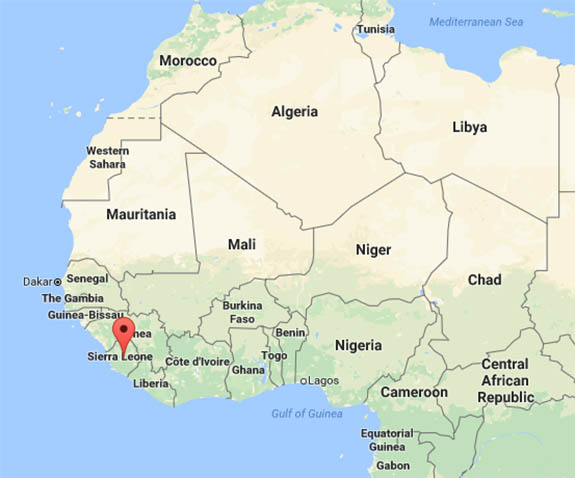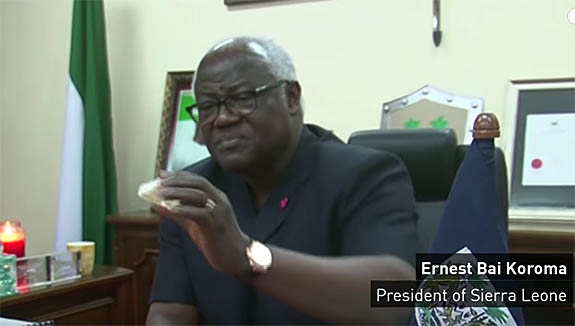Using only his bare hands and a sieve, pastor and part-time miner Emmanuel Momoh pulled a 706-carat diamond from the sediment of a river bed in Sierra Leone. About the size of a hockey puck, the diamond is the second-largest ever found in this western African nation and ranks as one of the top-10 largest rough diamonds ever recorded.
Momoh possessed a permit to mine for diamonds along the rivers of Kono in the Eastern Province of Sierra Leone, according to CNN. Kono is the largest diamond-producing region in the country.
While diamonds are usually found within kimberlite pipes, over time, the pipes can be eroded by rivers and the diamonds will be washed down stream. It is extraordinarily rare to find an alluvial diamond that weighs hundreds of carats.
As is required by Sierra Leone law, Momoh handed his lucky find over to the government. He will be entitled to a portion of the final sale, which could tally into the millions of dollars. The Sierra Leone government is currently having the stone appraised and evaluated.
The Star of Sierra Leone, a 969.9-carat diamond discovered in 1972, was purchased by Harry Winston for $2.5 million. The rough diamond resulted in 17 individual finished gems, 13 of which were rated flawless. The largest finished stone of the group was a pear-shaped gem weighing 53.96 carats.
Winston's seemingly modest purchase price shows just how far diamond valuations have come since 1972.
Just last year, "The Constellation," an 813-carat gem-quality rough diamond, was sold for a record-setting $63 million. Also in 2016, bidding for the 1,109-carat Lesedi La Rona reached $61 million, but failed to meet the reserve price at Sotheby's London.
Sierra Leone's president Dr. Ernest Bai Koroma praised pastor Momoh for his honesty. Miners with less integrity might have been tempted to smuggle the diamond out of the country. Instead, the government will supervise the sale of the stone and distribute the proceeds accordingly.
Said Koroma during a press conference, "I believe a diamond like this should be publicly sold in the country so we know the value of it."
The president wants to be transparent about who will buy the stone, what it will sell for and the amount that is due to the government. Apparently, some of the proceeds are already earmarked to fund development projects nationwide.
Screen captures via YouTube.com. Map by Google Maps.




